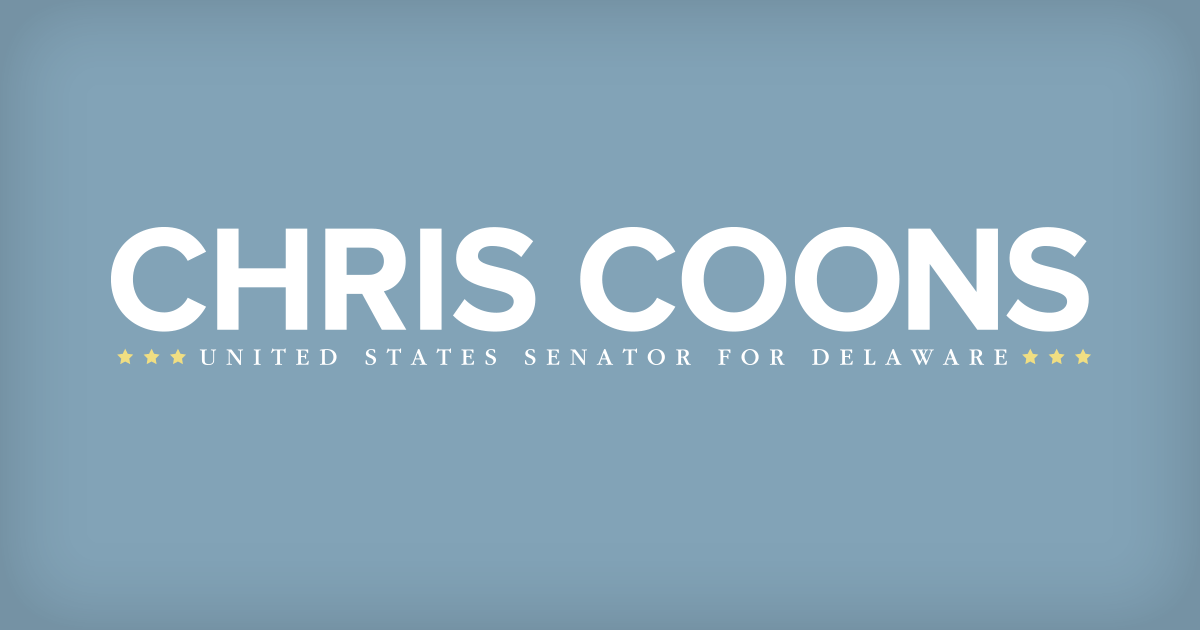Source: United States Senator for Delaware Christopher Coons
WASHINGTON – U.S. Senator Chris Coons (D-Del.), Co-Chair of the Bipartisan Senate Climate Solutions Caucus, participated in a fireside chat as part of The Washington Post Live’s Climate, Technology, and Sustainability event yesterday.
At the event, Senator Coons discussed how the historic legislation passed in the last Congress –including the Inflation Reduction Act, the CHIPS and Science Act, and the Bipartisan Infrastructure Law – is unleashing clean energy production in America, boosting manufacturing, and growing American competitiveness while reducing greenhouse gas emissions. Senator Coons also touted the importance of his bipartisan Hydrogen Infrastructure Initiative to support the adoption of clean hydrogen in energy-intensive sectors like shipping, heavy industry, and long-haul trucks, as well as his efforts to pass a border carbon adjustment mechanism that would make American manufacturing more competitive while reducing global emissions.
Full audio and video available here.
Senator Coons on …
The Inflation Reduction Act: “It’s not just some landmark accomplishment by President Biden. It’s already producing real and concrete impacts on the ground, creating more than 100,000 new clean energy jobs, attracting tens of billions of dollars of private-sector investment – the majority of which, by the way, are going to red states. So, we are seeing foreign auto manufacturers [and] foreign clean energy manufacturers bringing new plants and new projects to the United States. The intersection of the CHIPS and Science Act, the infrastructure bill, and the Inflation Reduction Act is driving a dramatic reshoring or onshoring of advanced manufacturing in the United States. President Biden has been president during the period of the sharpest and most rapid growth of employment in manufacturing.”
A border carbon adjustment mechanism: “One of the things I’m excited about working on is a carbon border adjustment mechanism that allows us to harmonize what the EU is doing on their CBAM. … Ideally, we would end up with a common approach to climate ambition by those economies that, like us, are committed to open societies, to free markets, and we could have a system that welcomes products from any source, ultimately, that is manufactured in a verifiably low-carbon way.”
Hydrogen investments: “There is a competition underway right now for massive investments by the federal government in a constellation of hydrogen hubs around the country. The point of that competition is to get regions to identify where can they generate hydrogen, how can they distribute it, and who’s going to use it. And the critical question … is who’s going to use it. Part of the legislation that Senator [John] Cornyn [R-Texas] and I have been working to move forward is to accelerate the adoption of hydrogen as a fuel, for example, for long-haul trucks. … Decarbonizing heavy industry … like the production of steel, cement, glass, that are the hardest to decarbonize, are [also] most likely to be decarbonized through the use of hydrogen as an advanced fuel. … So,the incentives in these bills that Senator Cornyn and I hope to move would address many of these: ports, heavy industry, long-haul trucks.”
Permitting reform: “There is a proposal that my senior senator, Tom Carper [D], who’s the Chairman of Environment and Public Works, is putting out – they’re having a hearing this week. There’s a proposal from Senator [Joe] Manchin [D-W.Va.] that’s won some support, both from the administration and Senator [Chuck] Schumer [D-N.Y.]. There’s a proposal led by … Senator [Shelley Moore] Capito [R-W.Va.] and Senator [John] Barrasso [R-Wyo.]. I think the right result is a mix of these. We cannot gut NEPA [National Environmental Policy Act]. … Having a single agency responsible for marshaling the review process and getting to an answer, whether positive or negative – having distinct timelines that agencies are required to follow for their review process – issomething I think there may be some agreement around.”
###
